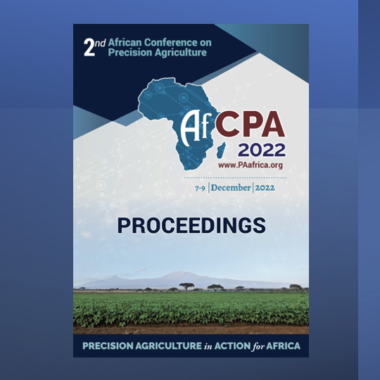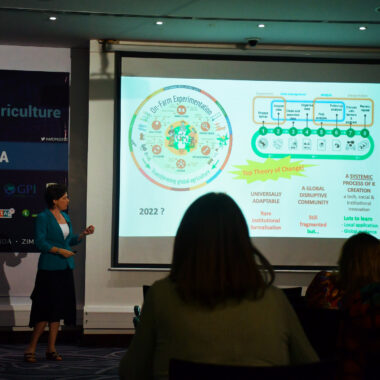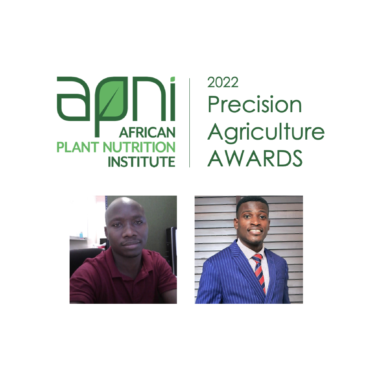PROJECT UPDATE
EVENT: Post-Harvest Stakeholder Workshop
LOCATION: Tamale, Ghana
DATE: 14-15 March 2024
The NUTCAT (Nutrient-Catalyzed Agricultural Transformation) Post-Harvest Stakeholder Workshop convened to review the project’s progress and challenges for its second year (2023) of improving maize productivity through precision nutrient management adoption. The event gathered key stakeholders including researchers, government officials, and agricultural experts who discussed results from site trials comparing optimized nutrient treatments with traditional farmer practice.

Stakeholders of the NUCAT project convened a Post-Harvest Workshop to review progress and challenges.
Yield comparisons demonstrated varying levels of maize productivity across districts. However, higher yields were observed across districts with optimized treatments compared to farmer practice. More precise management of applied nutrients enhanced maize productivity.
Table 1. NUTCAT Project maize yield comparisons, Tamale, Ghana (March 2024).
|
|
Maize yield, t/ha | |
| District | Farmer Practice (FP) | Optimized Treatment (OT) |
| Tolon |
1.8 |
2.6 |
| Gonja |
1.4 |
1.5 |
| West Mamprusi | 1.0 |
2.5 |
|
Yendi |
1.5 |
1.8 |
|
Middle Belt |
2.0 |
3.3 |
NUTCAT’s demonstration of improved maize productivity has positive implications both regional income and food security. The NUTCAT on-farm experimental model provides an innovation system to build regionally adapted strategies targeting better soil health and fertility. Continued growth of this approach contributes to the long-term sustainability of agricultural production systems.
Risks and Roadblocks
Despite the potential on the maize productivity side, workshop participants worked to identify several key financial, environmental, and socio-economic constraints that need to be addressed to secure sustainability.
Financial constraints included too limited access to inputs (both in terms of product choice and distance to retail services), hinder the application of recommended fertilizer rates, and limit the accessibility and adoptability of new agricultural technologies. Prevalence of maize lethal necrosis disease, weed infestation, and the threat of fall armyworm infestations combine to create a challenging set of conditions for famers to manage.
Erratic rainfall patterns are creating prolonged and hard to predict periods of drought. Soils are also vulnerable to degradation via soil erosion and periods of loss from run-off.
Socioeconomic characterizations reveal limited formal education, which hinders effective access and knowledge transfer from extension services. The project’s area of influence is predominantly composed of male-dominated households and needs to be more inclusive of women to reflect the landscape of maize producers within the region.
“NUTCAT has had a huge impact on the community of farmers influenced. This success requires its extension of technologies to other areas in the country, and the building of capacity through the student training by MoFA, UDS and OCP.” — CSIR-SARI Director.
Recommendations
Mid-project recommendations stress the need for continued farmer education, addressing cost and accessibility barriers, and considering gender issues. The workshop concluded with suggestions for improving communication among stakeholders, involving farmers in future discussions, and enhancing field management practices.
The importance of large-scale on-farm experimentation and the use of technology, such as drones, to monitor crop performance was also advocated.
Summary
The NUTCAT Post-Harvest Stakeholder Workshop illuminated critical challenges facing maize production in Ghana, while also presenting promising avenues for improvement through precision nutrient management. The collaborative efforts of researchers, government agencies, and agricultural experts underscore the urgency of addressing environmental and socio-economic constraints to unlock the full potential of agriculture in the region.
By prioritizing continuous farmer education, tackling financial barriers, and fostering inclusive and gender-sensitive approaches, we can pave the way for sustainable agricultural development and enhanced food security. As we move forward, it is imperative that we remain committed to implementing the recommendations put forth during the workshop, leveraging innovative technologies, and nurturing robust partnerships to empower farmers and ensure a prosperous agricultural future for Ghana and beyond.
Participants
Implementing Partners: Lead: Council for Scientific and Industrial Research – Savanna Agricultural Research Institute (CSIR-SARI), University of Development Studies (UDS)
Scaling Partners: Chief of the Departments of the Ministry of Food and Agriculture (MoFA) – Wenchi Agricultural Station, Tolon District Department of Agriculture, Northeast Savannah Municipal Department of Agriculture, West Mamprus Municipal Department of Agriculture, Yendi Municipal Department of Agriculture
APNI Staff: Dr. Kwame Agyei Frimpong, Senior Scientist / University of Cape Coast, School of Agriculture, Dr. Ivan Adolwa, Farming Systems Scientist & OFE Leader, Nairobi, Kenya, Dr. Thérèse Agneroh, Scientist & Liaison Coordinator, Yamoussoukro, Cote d’Ivoire.
Ph.D. Students: Mr. Elogne Mandela N’Douba, Research-Development Manager OCP-CI, Mr. Emmanuel Odoom, University of Cape Coast.






